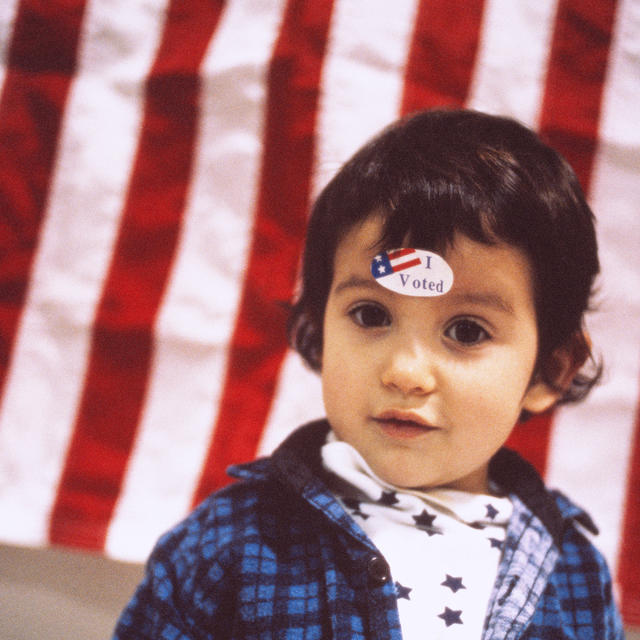Young kids who are taught self-control end up voting more.
In the classic marshmallow studies at Stanford University in the 1960s, researchers plopped preschoolers in front of a marshmallow, told them if they’d wait to eat it they’d get another, and then left the room. The kids who were able to wait—while staring longingly at the snack—later turned out to be more successful in life.
The marshmallows spawned an explosion of research on skills like grit and self-regulation, and how kids with higher “socio-emotional skills” are more likely to do better in school, make more money, and be happier with their lives. Now, new research suggests that they might also be more likely to vote.
After looking through data from a massive, 20-year study of an experiment designed to teach kids better self-control, a graduate student from Duke University found that the children who were taught these skills were about 40% more likely to vote when they grew up.
Part of the reason might be that they were simply more likely to be able to deal with the hassles of registering and showing up at a voting booth.

“Voting is expensive. Not in monetary costs, but in the time, energy, and mental attention that this foundational act of democracy requires,” says John Holbein, the PhD student behind the research. “In order to vote, citizens have to know where to vote, when to vote, and how to register to vote, all while drumming up the energy and focus required to overcome the many distractions that get in the way of their voting.”
While other resources—like how much someone knows about politics, how much time they’ve spent in school, or how much money they make—also influence whether someone votes, Holbein argues that socio-emotional skills also make a difference.
“People often have to wait in long lines or simply face a number of distractions on election day that would stop them from voting—i.e. the oil needs changing, an unexpected deadline arises, etc.,” he says. “Even if other things get in the way on election day, what types of citizens still go to the polls? Perhaps gritty citizens persevere and vote despite these distractions, while less gritty citizens simply stay home.”
Better social skills may also make people more likely to empathize with others, and vote because they care how the outcome will affect someone else, he says. Someone who’s better at controlling emotions like anger potentially might also be more likely to participate (anger has also been shown to inspire people to vote).
The experiment that Holbein analyzed, called the Fast Track Project, worked with students from first grade through high school in four cities, using a combination of classes, parent training, peer groups, after-school tutoring, and in-home visits. Kids were taught how to control emotions, overcome obstacles, and work with others. A control group of other students didn’t get the extra help—and as adults, it showed.
Holbein also pored through several other data sets that showed a strong relationship between skills like grit and political participation. The findings make a case for targeting potential voters when they’re still in preschool, rather than waiting until they’re 18.
“Rather than waiting until young people are in high school or in early adulthood, during the middle of a campaign, civics programs should start even younger,” he says. “Early on, children get set on a path that will lead towards participation or one in which they rarely participate. My work shows that this path can be shifted by targeted interventions early on.”
[Top Photo: Daniel Acker/Bloomberg/Getty Images]
Fast Company , Read Full Story
(85)